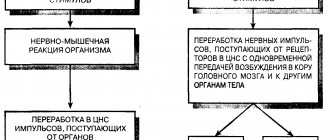Starting the conversation, Bishop Panteleimon reminded that one must use the experience of the holy fathers in the fight against passions judiciously and carefully. You should always keep in mind the difference between their high spiritual level and your own, “perhaps not even zero, but minus.” Otherwise, there is a risk of only strengthening the passion that you are trying to correct, or even acquiring another one.
The Bishop cited the words of St. Simeon the New Theologian about how he followed the spiritual path of his mentor, St. Simeon the Reverent. The New Theologian poetically says that the mentor washed himself in springs and pointed him to springs of living water. “But I,” the saint laments, “drew clay along with the water, muddied these springs, and instead of being cleansed, I polluted myself.”
Negative influence
What dangers does despondency hide for a person?
- The main one is that melancholy extends to both the mental and physical state of a person. He doesn’t want to do anything, meet anyone, talk, etc.
- As a rule, people of an egoistic nature are susceptible to this condition, since most of their time they are busy with themselves. They think about themselves, engage in soul-searching, and so on.
- The danger is that if you don’t try to get out of this state, you can fall into complete despair.
- One of the symptoms of sadness is depression. This condition is considered a disease in some countries. It should be treated under the supervision of specialists.
- If you cannot get out of such a state as despondency, this can lead to thoughts of suicide.
- In a depressed state, a person’s thoughts may come to the conclusion that he is worthless and life has no meaning.
- This condition leads to decreased ability to work. It also causes a lot of trouble for the people around you. Communicating with a person who is in a state of despondency is quite difficult. Not everyone is able to be patient with a person with such an attitude.
How to get rid of depression on an intellectual level
Here the reason for the blues is the lack of plans and ideas. Changing the situation is easy. Set a goal for yourself. Not necessarily global. Maybe you have long wanted to learn a foreign language or read an interesting book. The time has come to implement this idea. Or, for example, improve your skills in the professional field. Sign up for specialized courses tomorrow.
Having goals helps you find meaning in life and, as a result, get rid of bad thoughts.
What signs can be used to determine that a person is sad?
Dejection is a condition that can be identified by both external and internal signs. There are two main gradations. They can also be used to determine the presence of despondency. The first includes the emotional characteristics that are inherent in this state. The second includes physical manifestations.
What is the emotional state of a person when he is depressed?
- Feelings of pity and resentment for oneself.
- The impossibility of expecting anything good. A person who experiences despondency is in bad shape.
- Anxious mood.
- Bad feelings.
- Low self-esteem. A person thinks that there is no happiness in life.
- What previously brought positive emotions does not bring any joy in a state of despondency.
- An indifferent attitude towards everything that happens appears.
What physical features appear when you are depressed?
- There are problems with sleep.
- A person begins to eat a lot or, on the contrary, his appetite decreases.
- Fatigue appears quickly.
How to get rid of despondency and sadness
There are many ways to get rid of despondency. Conventionally, they can be divided into 3 groups.
Help for the body
First of all, limit communication with those people who take away your strength. They are also called energy vampires. After meetings and conversations with them, loss of strength, anxiety, apathy and deterioration in physical condition are felt.
Try to communicate only with those who evoke exclusively positive emotions. Conversations with them should bring joy and charge you with positivity. If the conversation suddenly changes direction, don’t be afraid to stop it and walk away.
There are a number of other tips that will help improve the general condition of mind and body:
- If possible, sign up for a course or at least a massage session. Soft touches, a relaxing atmosphere, pleasant aromas - all this will help relieve stress, calm down and tune in to the positive. You can replace a massage by going to the bathhouse.
- Play sports. You don't have to go to the gym or the stadium. It is enough to set aside a few minutes for morning exercises. Do 5-10 squats, 7 bends in each direction, jump on the spot. Even such physical activity will invigorate, improve your mood and overall well-being.
You should fight despondency even through “I don’t want.” Remember the significant phrase from social networks that when you lack strength, you need to lie down and lie in the direction of the goal? This is roughly how it should be done. Only in this case will you be able to see the result.
Help for the soul
According to psychologists, the best way to get rid of despondency is reading. Life stories are always fascinating. Especially when they talk about those who have achieved success.
If you don’t like to read, watch good, soulful films or listen to pleasant music. It is important that any activity fills your soul with warmth and positive emotions.
You also need to eradicate fears and resentments. Take a blank sheet of paper and a pen. Write down what has been bothering you for a long period of time. Don't try to hide something or keep silent about something. Be open and honest with yourself. Then burn the paper or tear it into small pieces, while saying each phrase you write.
Spiritual help
The main thing in this matter is to find the meaning of life and your purpose. Then think about what you would like to achieve in the near future or, for example, in 5 years. Have you decided on your desires? Now set big and small goals. Walk towards them slowly, but confidently.
For motivation, you can write down your goals in a separate notebook. Divide them into 2 groups according to timing and importance. From time to time, check your actions with what you wrote. Note what you have already achieved and what you still need to work on.
Conquering the disease
How can you overcome despondency? This can be done through three basic practices that can help a person cope with this condition.
- Help from a specialist, namely a psychologist. If a person is depressed, the doctor may prescribe special medications. They will help you get out of this situation.
- Religion and faith in God help people reassess values and look at life differently.
- Supporting the spirit through sports activities. It is necessary to exercise and lead a healthy lifestyle.
Dejection is a state in which a person feels depressed and unwanted. At the first manifestations, an effort should be made to get out of apathy. You can’t give in to despondency; you need to force yourself to switch to other activities and stop self-searching.
Dejection is the worldview of the devil
Despondency leads to neglect of the Christian life. Very often, a person in despondency begins to envy people who live far from the Church and are not bound by the commandments, and forgetfulness of heavenly blessings occurs. Dejection turns into relaxation, and in some cases it is overcome by work, and in others, work serves as an excuse to quit praying in despondency.
Bishop Panteleimon noted that for modern people, the memory of death is not associated with the expectation of the Last Judgment and a meeting with God. Suicide out of despondency is disbelief in eternal life. Such a person does not believe in meeting God and is ready to commit suicide just to end the difficulties.
Dejection in modern society
Unfortunately, today it is not uncommon that, despite all the external well-being of a person, he does not experience a feeling of joy. There are cases when a citizen is financially secure, he has a family, he goes to expensive resorts, but nothing gives him a feeling of satisfaction. Moreover, people who have more money experience despondency and depression more often than those who experience any financial difficulties. There are also situations when a person is always dissatisfied with something. For example, it seems to him that he has a bad wife or that if he had a car, he would be happy, and so on. But in fact, it turns out that changing your place of residence, buying a car and getting a new wife still does not bring satisfaction.
From a psychological point of view, this human condition is called depression. Today it is considered the most common mental disorder. There are psychological services for people. If despondency is at the initial stage, a psychologist will help the person find a way out of his condition. But it happens that psychological support can only have a temporary effect. Therefore, after some time, everything returns to the person again. If we talk about religion, despondency is considered a mortal sin. In this regard, there are certain explanations for the reasons for its appearance and how to deal with it.
Life without despondency and despair on the physical level
The main reason for the appearance of sadness and melancholy is deteriorating health. An unbalanced diet, lack of solar energy, a sedentary lifestyle, vitamin deficiency - all this provokes the development of despondency.
Inadequate nutrition or snacking on the run leads to the development of many serious diseases. A proper menu, on the contrary, helps improve your health. That is why you need to revise the menu, adding more fresh fruits and vegetables to it. If a blood test shows that this is not enough, take vitamin complexes or dietary supplements. But before doing this, consult your doctor. Self-medication often backfires.
Physical activity will also help improve your condition. Walking in the fresh air and moderate exercise replenish oxygen and vitamin deficiency. They increase endurance and also improve metabolism. Therefore, go outside as often as possible. If possible, include anaerobic exercise in your daily routine, such as running, swimming and cycling.
Dejection is a sin. Religious point of view
There are two types of despondency. The first type is a state that completely consumes a person and causes loss of spirit. And the second type of despondency is associated with anger and irritability. Regardless of the type, despondency is a sin.
A person who is in this state may begin to blame other people for his misfortunes. The more he plunges into himself, the more he blames others. Also, the number of people who are considered culprits is increasing. A person develops anger and hatred towards all people with whom he comes into contact in one way or another.
You should understand: everything that happens to us is a consequence of our actions. If someone finds himself in a situation that makes him uncomfortable, then he created it himself. In order to get out of it, you need to start acting differently.
You also need to remember that the more angry you are at circumstances or an unfavorable situation, the worse it will be. And if you accept everything humbly, the situation will resolve itself. There is no need to drive yourself to despair. It can lead to thoughts of suicide.
Useful tips for getting rid of despondency
There are a number of recommendations that, if followed, will fill your life with happiness and joy:
- Be outside more often. If possible, go hiking, have picnics, or just walk in the park.
- Eat right. Eliminate fatty, spicy, smoked foods, as well as alcoholic drinks from the menu. Replace them with fresh fruits and vegetables. Watch your drinking regime.
- Try to improve relationships with family and friends, work colleagues and friends.
- Learn to make money. Financial stability – new opportunities.
- Do good deeds. They will help you feel like a full part of this world.
- Don't forget about charity. It is not necessary to immediately rush to extremes. Start small. Let it be a bag of food for a homeless kitten or a search for a home for a yard dog. Such assistance will not be a burden on the family budget. However, it will bring satisfaction and joy.
- If despondency is a consequence of boredom and melancholy, you need to do any useful work as quickly as possible. This could be work, hobbies, meeting new people, visiting interest groups, etc. Such employment will not let you get bored, will push bad thoughts out of your head and will help in the fight against despondency.
- Don't watch horror movies or heavy, dark dramas. Replace them with kind family pictures.
- Pamper yourself after achieving some goals or just to improve your mood. Make pleasant purchases and surprises for your loved ones. For example, buy a cake. Forget about diets and proper nutrition for a moment. Have fun and positive emotions. They will help you get rid of the blues and forget about grievances and fears.
- Don't feel sorry for yourself. Pity is a bad quality. It leads first to despondency and then to despair. It is better to calmly accept everything that happens in life, learn from it and draw conclusions.
If the tips listed above do not change the situation, you should most likely consult a psychologist. Don’t delay this, otherwise you will have to deal with serious consequences later.
Reasons for appearance
What could be the reasons for despondency?
- Pride. If a person is sensitive to any failures or statements made in his direction, he can easily become despondent. This hurts his self-esteem. But if a person does not take everything to heart, then he will not fall into despair. Then he is calm about what is happening around him.
- Failure to satisfy desires can also make some people depressed. Moreover, the more a person succumbs to it, the more the desires themselves lose their meaning.
- In addition to the above reasons for despondency, there are also those that can appear in people who are strong in spirit. These include the absence of grace, the cessation of any activity by a person. Boredom may set in. Also, sad events can cause despondency. For example, the departure of a loved one or the loss of something. And even in this case, one should not fall into sad thoughts about the injustice of the world. Death is the natural end of life, and we all lose something or someone in life.
- Dejection can arise due to illnesses that accompany a person.
Getting out of despondency at a social level
In this case, problems begin because life did not live up to expectations. There is a feeling that she is passing by. There is no family, there is no way to earn money, and success is also far away. These circumstances provoke a feeling of uselessness for society. Over time, it only gets worse, giving way to depression. What should I do?
There are several ways to combat depression on a social level. First, think about why you weren’t successful. Are circumstances to blame here or does the responsibility lie with one’s own laziness, lack of self-confidence and lack of willpower and motivation? It is important to answer this question as honestly as possible. And then, depending on the result, begin to act.
Not enough money. Try changing your field of activity. I can't find my soul mate. Try to expand your circle of acquaintances, work on your self-esteem, change your behavior or manner of communication. There is always a way out. As soon as you see the first successes, self-confidence will appear, and with it a feeling of lightness. They will help overcome despondency and blues.
How to overcome this condition?
How to overcome despondency? The methods will now be listed:
- First of all, you need to understand that negative thoughts can be “remade” into positive ones. It doesn’t matter why a person began to think that everything was bad. Perhaps someone inspired him, or his thoughts revolve around childhood experiences. You should find out what causes despondency and depression. To do this, you need to ask yourself: “What thoughts lead me into a state of sadness and melancholy?” The answer to this question needs to be written down. Next you need to read what was written down. Then you should convince yourself that this list is limited by your perception. In fact, the world is much wider. You shouldn’t think only about the clouds in the sky, it’s better to remember that there is the sun, blue sky and white airy clouds. Then you need to cross out the bad thought and replace it with a good one, which is filled with positivity and joy. Next, you should repeat positive statements until you believe in them. If this is difficult to do, you can tell yourself that this is a game and you will imagine yourself believing these thoughts. You need to convince yourself and set yourself up for positive thinking.
- You must learn to understand that if hopeless sadness sets in, it is only due to your narrow perception of reality at the moment. It's actually not that bad. As soon as sadness sets in, it is recommended to think that this is a temporary phenomenon and will soon pass. You also need to take care and protect yourself, pamper yourself with something that can distract you from your sad mood. Water procedures help very well. They will help you relax physically and take your mind off sad thoughts. You can also take a walk in the forest, walk briskly in the fresh air.
- Dejection and melancholy are quite bad states. You should not fall into them, even if it seems to you that something was done wrong in the past. The past is our experience, a lesson. Positive conclusions should be drawn from it. A positive attitude about the past is necessary. There are lessons to be learned from everything. For example, about some episode in life a person thinks that he broke or crippled him. This conclusion is fundamentally incorrect. You need to change your thought form. You should think about any incident from the following perspective: “it made me stronger, I gained experience, thanks to which I can overcome such situations with ease.”
- You should learn to enjoy every moment. Many people have probably heard that in old age people talk about how quickly life has passed and remember the positive moments. This means that you don’t need to waste yourself on depressing thoughts that lead to self-destruction. You should approach everything with joy and a smile. Then there will be no time left for melancholy and sadness. You need to remember that thoughts about the past or plans for the future do not allow you to enjoy the present. First of all, you should relax and live in the present time. You need to give yourself the following attitude: it doesn’t matter what happened in the past and you don’t have to be afraid of the future or live in anxious anticipation of something. You need to live the present moment with a feeling of joy and gratitude, enjoy every moment.
Symptoms of apathy
Symptoms of apathy vary. Often a person:
- volitional activity decreases;
- joy is not felt from ordinary actions and things;
- moral suffering appears.
If we talk about the external manifestations of an apathetic state, then these are:
- detachment from the outside world;
- indifference to what is happening;
- passivity;
- sadness for no reason;
- desire to be alone;
- reluctance to give and receive love.
With apathy, people are deprived of emotions, becoming lifeless creatures without any aspirations or desires. However, everything can be returned if the symptoms are recognized in time and measures are taken.
People with apathy are not tense or irritable. A person becomes indifferent to what is happening around him. He sees no point in any action. Apathy destroys every aspiration and desire, as well as any human emotions.
With its help, a person protects himself from the unfulfillment of his needs. Some researchers suggest that it can transform into a character trait of a modern personality.
Apathy eliminates will and love. It can provoke violence.
A person who is covered with deep apathy has no vision of the future, he does not plan his life, does not hope for the best, he is depressed and sad.
Causes of apathy
The most common causes of apathy are fatigue and bad mood. However, this list also includes a number
other reasons:
- Restlessness, anxiety. The fact is that the human psyche is fragile and vulnerable. And she needs something to protect herself from various threats and strong irritants. One of these mechanisms is an apathetic state. In this way, the brain attempts to reduce stress levels.
- Another reason may be insufficient rest. Rest makes it possible to restore the balance of energy and vitality. When a person devotes himself fully to work, he may not notice his fatigue. Even though he gets a good night's sleep, fatigue can gradually accumulate. Active and emotional relaxation in your free time can help you fully restore your energy.
- The presence of emotional tension in society. Sometimes the cause of an apathetic state may be pressure from someone close to you or from strangers or other people in a public place. In this case, a protest against any action arises inside a person, in his soul. He loses all desire to do even what he previously wanted to do. And here our defense mechanism comes into play, which allows us to ignore public opinion and all the demands of the surrounding world.
- Problems and stressful situations load and overload the human psyche. People who have to constantly be exposed to stress completely waste their energy and may experience apathy.
- Diseases and exhaustion of the body are also another good reason. Any serious health problem, both at the level of the physical body and mental organization, can provoke an apathetic state.
- The cause of apathy may be a side effect of the medicine that a person is taking. These can be drugs with a sedative, antibacterial or other effect.
- Emotional burnout. Each person has his own hobby, hobby, favorite thing, which can almost completely “absorb” him. Often people become immersed in such activities and work, devoting all their free time and energy to them. After all, all this brings them pleasure, pacifies and pleases them, and practically becomes the meaning of life, but for the time being. However, gradually a person feels a fading interest. He burns out emotionally and may experience apathy.
Signs of apathy
Apathy, the signs of which are indifference, lack of initiative, and insensitivity, has no external manifestations. It is also called emotional paralysis. Very often its companion is abulia, which is expressed as a general decrease in mental activity. People begin to lead a sedentary lifestyle, communicate little with other people, and do not want to take initiative. An apathetic person feels sluggish in his movements and speech, and suffers from memory lapses and thinking failures. Such people stand out from the crowd. These changes are especially noticeable for close people who know their character and habits. After all, their loved one may begin to behave differently than before.
Detachment, indifference and lack of activity are difficult to miss, especially in those who previously behaved in the opposite way. Of course, if such manifestations persist for a long time. Such people stop showing interest in what is happening, even important events and things in their lives. They no longer share their emotions with those close to them; it’s as if someone has frozen them, depriving them of the need to love and communicate. But sometimes, instead of understanding and helping, loved ones are offended by this attitude towards themselves.
You cannot ignore the following in yourself or your loved ones:
- deterioration in health, lack of strength, drowsiness (even with normal sleep), constant fatigue;
- loss of interest in what is happening around, indifferent reactions to any events (good and bad);
- the desire to be alone with oneself, the lack of desire to leave the house or enter into conversations;
- lethargy, slowness in speech and actions;
- almost complete absence of emotion in statements;
- reluctance to take care of one’s appearance, perform hygiene procedures, and pay attention to issues of well-being;
- the emergence of “nervous” habits.
If such people are helped in time, they can quickly return to normal life.
How to deal with depression?
Apathy, a state of indifference to everything around, must be fought. But you can win this battle only by knowing the mechanism of its appearance. It's all about human emotionality. Indifference arises from an excess or lack of emotions. They tend to gradually become dull. After all, it is impossible to be at elevated levels all the time. The strength to rejoice does not last very long. But even without positivity, without receiving pleasure, a person has nowhere to get vital energy from. The body needs a break, a certain time to replenish the energy deficit. It is during this period that indifference, passivity, and weakness arise.
If such manifestations are temporary, then they do not harm a person. And many of us periodically face such apathy. This is considered almost the norm.
But in cases of a condition where it begins with boredom and ends with a complete indifference to what is happening, appropriate measures must be taken. Otherwise, you can get seriously and permanently ill. And no one really has insurance against this. The worst thing can happen when an apathetic person has no one to help, and he reaches the point of indifference to himself, and not just to the world around him.
How to overcome apathy?
If a person cannot cope with his apathy alone, specialists will help overcome it. They will help
understand the problem situation and build an individual algorithm for subsequent actions.
But for everyone it is recommended:
- ensuring proper rest;
- any physical activity;
- adherence to sleep and diet;
- eliminate sources of unpleasant communication;
- do not abuse alcohol.
Yoga, meditation, a new hobby, or expanding your social circle can help cope with the problem. In addition, you can start doing things that were put off before. But provided that the activity brings positive emotions. You need to work on yourself, develop spiritually.
There are effective methods to get rid of despondency:
1. Change in environment.
- You need to go outside every day and show your face and limbs to the sun to get vitamin D. A 20-minute walk is enough.
- You should set aside a day for your personal goals and enjoying the pleasant moments of life.
- It is necessary to periodically radically change the environment in your home or office. This can help you see things and the world in a new way.
- When depressed, you should not go on social networks or watch TV for a long time. It is better to give preference to social activity and doing what you love.
- It is useful to go outside the city, into nature. This should not be regarded as running away from the problem. You just need to enjoy the contemplation of natural beauty and the benefits for the body from the freshness of the air.
2. Making physical changes.
- You need to spend at least an hour every day playing sports. You can change the types of training.
- It is necessary to abandon transport for a while (within reasonable limits). Walking is beneficial for every person.
- If you have abused alcohol or taken drugs, you need to remove them from your life. This not only does not help in the current situation, but is also fraught with aggravation of the problem.
- You need to get up early. A morning jog or walk before work is a great way to start a productive day.
- You should periodically pamper yourself with visits to beauty salons, massages or spa treatments.
- You need to switch to proper nutrition for at least some time.
3. Correction of the emotional sphere of life.
- You should set goals yourself or use the help of a specialist. When a person has no desires, aspirations, or lacks motivation, he may become despondent and depressed. Everyone should have a dream that they will pursue without being distracted by negative manifestations.
- It is necessary to analyze your relationship with your environment. Then try to minimize communication with negative, cynical people who can contribute to the loss of incentives and desire for life. Such influence is of no use, especially to a person who is despondent and indifferent to everything that happens in his life.
- You need to try to renew contact with loved ones and important people. They will be able to help return to normal life and awaken the best in a person.
Rule 7: The basis of joy is gratitude to God
By gratitude, Bishop Panteleimon means both gratitude to God for His blessings and the Eucharist (from the Greek “thanksgiving”).
We need to learn to rejoice on Bright Week. Usually a person fasts throughout Great Lent, breaks his fast on Easter, relaxes, and begins to feel despondent again. Meanwhile, although you can eat meat and even take communion after that, you should not relax. Every day you should try to be in church. Easter hour instead of morning and evening prayers is very little. It is necessary to supplement the rule with reading the Gospel, for example, the Gospel of John, whose reading begins in church on the day of the Holy Resurrection of Christ. You need to plan in advance how you will live Bright Week, try to memorize the Easter canon. We must try to fill our souls with Easter joy, even by force. Otherwise, it turns out that we fasted without a purpose. Lent has ended and we live as before. Even after spending Bright Week just once, with attention, you can feel changes in yourself. This is how the soul learns spiritual joy.
“The Church cannot be ideal, and salvation is not in Her in itself, but in Him who is within Her, in the Risen Living Savior,” continued Bishop Panteleimon. – You need to rejoice in everything that connects you with this joy, to recognize through this genuine joy how it differs from imaginary joy. The main joy is the Liturgy. The basis of joy is union with Christ. Without it, no psychological techniques will help increase self-esteem. We cannot pull ourselves out of the swamp by our own hair. Only God can do this. The Lord does not give us joy because we do not take from him. Our joy should be combined with gratitude to God, remembrance of God’s good deeds. Such joy can be a criterion - true joy is only what is compatible with the Eucharist,” Bishop Panteleimon emphasized.
At the end of the conversation, he said that someone who tries to overcome passions without labor and struggle, and by listening to lectures and reading books, is like a person who, as St. Petersburg said. Gregory of Sinai, knows the shadow instead of the truth. “The extent to which this shadow will become the truth depends on how we ourselves live,” concluded Bishop Panteleimon.











